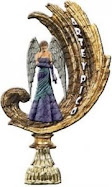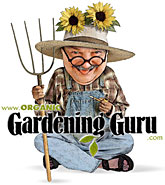(Scroll to the bottom for today's featured black artist, politician, or gardener, all in honor of Black History Month.)
I didn’t want to ruin anyone’s weekend, so I saved this one, but on Friday the NY Times reported that carbon dioxide is making the oceans so acidic that shellfish, coral reefs, and the balance of life in the ocean in general is threatened. This from a panel of a hundred and fifty-five (155) scientists from twenty-six (26) countries.
The carbon dioxide, of course, comes primarily from burning fossil fuels, and the acid comes from what happens to that CO2 when it dissolves in the ocean: it becomes carbolic acid, a.k.a. phenol, a poison so potent and so easy to produce that the Nazis used it in their extermination programs.
The world’s oceans serve as a wonderful carbon sink, removing a quarter to a third of the human-produced carbon dioxide from the atmosphere, but apparently even they have a limit.
Moral: KEEP THOSE GARDENS GOING, and compost like a maniac. Photosynthesis and soil are the other two great carbon sinks besides the oceans, so the more green things we can grow, the better. Organic matter (compost, in case you didn’t get it) also sequesters (stores) carbon in the soil. The best, as in longest-term, form for these purposes is humus, the enormously complex organic (as in, containing carbon) molecules that help stabilize soil, improve water retention, and perform dozens of other things that are good for your garden. They last for hundreds of years, so the carbon they contain is locked up for a long time. Oh, and yes, composting does produce humus!
Original article:
Rising Acidity Is Threatening Food Web of Oceans, Science Panel Says
By CORNELIA DEAN
Published: January 30, 2009
___________________________________
African-American of the Day: Drawn at random from Molefi Kete Asante’s list of 100 Greatest African Americans. (Asante, a prolific professor of African-American studies, started the first PhD program in that field at Temple University in1987.) I downloaded the list from the Wikipedia article on it, checked off the 40 or so I know (gulp) and am curious to see who some of the others are. I don’t know much about his list—it’s also the basis of a book by the same name—but what the heck.
Oscar Micheaux, (1884-1951) turns out to be one of the most—if not the most—prolific film makers of the silent era, producing and directing forty-four full-length films over the thirty years ending in 1948. A controversial figure, he focused on race issues in his films, even taking on the racism in D.W. Griffith’s The Birth of a Nation. He was the first black filmmaker whose work was shown in mainstream (i.e., “white”) theaters, and he gave the great actor and basso profundo (the lowest of all singing parts) Paul Robeson his first film part, in his 1924 Body and Soul.

 Subscribe to RSS feed
Subscribe to RSS feed



Hmm I doubt just composting will actually save the world. I’m going to do it anyway. :> Studies say turning over the soil for agriculture makes the carbon in the soil turn over faster. So stick with nice easy no-till methods. I love an excuse to be lazy.
Daphne, Yeah, I know–compost on the brain, right? But when you consider that a quarter of all the garbage we throw away in the US is food and yard scraps, composting could play a significant role in–well, saving the world. Especially if you add in the paper, which I think is another 30%, and also compostable. I thought I’d done a post on this, but I see not. Hmm.
–Kate
I truly enjoy your blog, especially now that you are recognizing Black History Month. I knew next to nothing about the African-American historical experience and bought a book the other day called “Still I Rise” which is a graphic novel which details the historical background of Africans in America. Very readable and well done. I learned a great deal. I didn’t write it and have nothing to do with it, but thought you might be interested in it.
Thanks
Welcome, Lemonhead— I gather you’re from over the border somewhere? I don’t know that particular collection, but am glad to hear about it. A graphic novel would reach a whole group who might never pick up a traditional literary anthology or history book.
Myself, I’ve been fascinated by my brief glimpses into the varied lives of European blacks, as well as the Americans I’ve never heard of.
I decided not to cover the most famous African-Americans, though I may not be able to resist Soujourner Truth, but to learn and share about some less well-known figures, and it’s been great! Glad you’re enjoying it.
–Kate